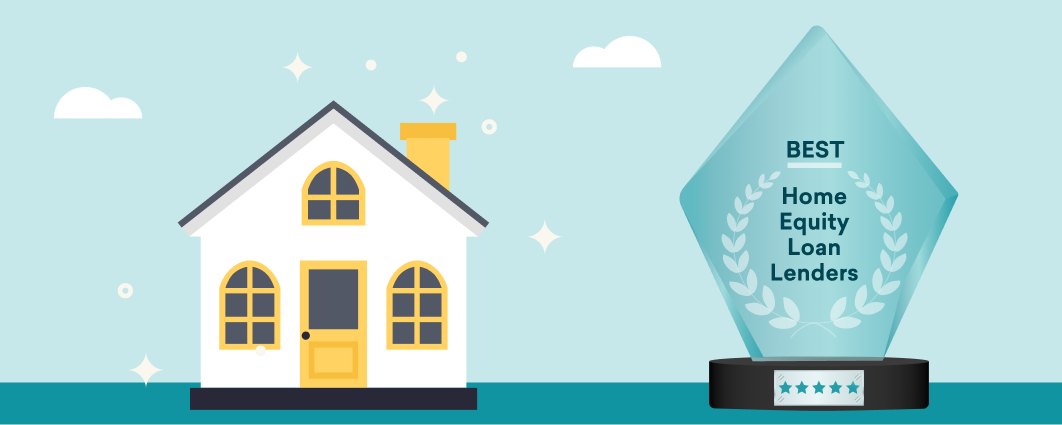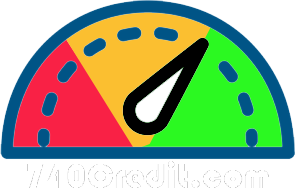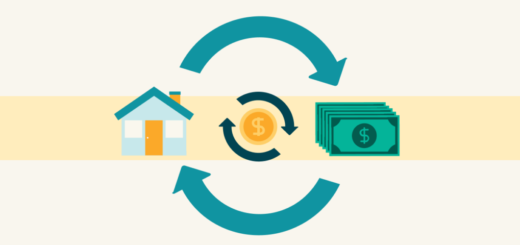Best Home Equity Loan Lenders of 2022
Our goal is to give you the tools and confidence you need to improve your finances. Although we receive compensation from our partner lenders, whom we will always identify, all opinions are our own. Credible Operations, Inc. NMLS # 1681276, is referred to here as “Credible.”
The best home equity loan lenders offer a wide range of loan amounts and terms at competitive interest rates. They’re transparent about what they can and can’t offer you. And they have a solid reputation for customer satisfaction.
Unfortunately, finding a lender that offers home equity loans can be significantly harder than finding a lender that offers purchase loans, refinance loans, or home equity lines of credit (HELOCs). While you can’t use Credible to find a home equity loan, we’ve identified six companies that do offer these loans and reviewed the pros and cons of each one.
Here are the best lenders for a home equity loan:
Best home equity loan lenders
No single home equity lender excelled across the board on the criteria we evaluated. Each has its strengths and weaknesses. You may have to compromise in some areas, but you may still be able to find a good loan for you by shopping around.
The following six lenders are not Credible partners, so you won’t be able to easily compare your rates with them on the Credible platform. But they may be worth considering if you’re looking for a home equity loan.
| Loan fees | Min. loan amount | Max. loan amount | Maximum CLTV | |
|---|---|---|---|---|
| Northpointe Bank | Not disclosed | $10,000 | $500,000 | Not disclosed |
| Spring EQ | $799 plus third-party fees | $25,000 | $500,000 | 97.5% |
| Discover Home Loans | $0 | $35,000 | $300,000 | Not disclosed |
| TD Bank | $99 | $10,000 | $500,000 or higher, depending on lien position | Not disclosed |
| U.S. Bank | $0 | $15,000 | $750,000 ($1 million in CA) | Not disclosed |
| Navy Federal Credit Union | $300 to $2,000 | $10,000 | $500,000 | 100% |
Northpointe Bank
Best for: Competitive interest rates
Based in Grand Rapids, Michigan, Northpointe Bank offers banking, home lending, and insurance services. The bank opened in 1999 and has 64 branches across the U.S.
Pros
- Competitive interest rates relative to other big-name lenders
- Loan amounts from $10,000 to $250,000
- Claims a 97% customer satisfaction rate based on its own survey
Cons
- Not available in all states
- Doesn’t disclose maximum combined loan-to-value (CLTV), terms, or closing costs
- Doesn’t provide as much information as applicants might want
Spring EQ
Best for: Fast closing time
Based in Philadelphia, Spring EQ calls itself one of America’s fastest-growing lenders with a leading-edge digital process. In a best-case scenario, Spring EQ claims you can close on your home equity loan and receive your cash in 11 days. On average, the company says its customers get their cash in 18 days.
Pros
- Fast closing
- CLTV up to 97.5% with a credit score of at least 740
- Simplified application process
- Apply online
Cons
- Closing costs are $799 plus third-party fees
- Rates start at 6%
- Minimum loan is $25,000
- Not available in all states
Discover Home Loans
Best for: Low rates with no closing costs
Discover is best known as a credit card company, but it offers home equity loans and other financial services, too.
Pros
- No origination, application, or other closing fees
- Apply, submit documents, and view your loan status online
- 10-, 15-, 20-, and 30-year terms
Cons
- Best rate requires no first mortgage and a $200,001 loan
- Minimum loan amount is $35,000
- Maximum loan amount is $300,000
Check Out: Using a Home Equity Loan or HELOC to Pay Off Your Mortgage
TD Bank
Best for: Borrowers with high property values
TD Bank is one of the largest banks in North America, offering a range of banking, savings, and borrowing options — including home equity loans — in the United States and Canada.
Pros
- Loan amounts start at $10,000
- Lends to borrowers with properties worth $2.5 million and up
- Location-based rate quotes available online
Cons
- Doesn’t disclose CLTV requirements
- Must call for more information on high-property-value loans
- Not available in all states
U.S. Bank
Best for: Larger loans with no closing costs
U.S. Bank is the nation’s fifth-largest commercial bank and has been named by the Ethisphere Institute as one of the world’s most ethical companies for eight straight years.
Pros
- Loans up to $750,000 ($1 million in California)
- No closing costs
- Flexible loan terms up to 30 years
Cons
- Doesn’t disclose CLTV requirements
- Doesn’t update rates daily
- Doesn’t give location-based rate quotes
Navy Federal Credit Union
Best for: Customer service, high CLTV
Navy Federal Credit Union might be the best 100% CLTV home equity lender because most lenders have lower limits. However, like many credit unions, Navy FCU isn’t open to just anyone: You must be a current or retired member of the armed forces, or a family or household member of someone who is.
Pros
- Up to 100% CLTV with 7.99% APR and a five-year term
- Excellent Trustpilot reviews and recent customer service awards
- Transparent about offerings and weaknesses
Cons
- Military and families only
- Maximum loan term of 20 years
- Lengthy application processing and closing timelines
Methodology
To identify the best companies for home equity loans, Credible looked at data points in the following categories:
- Rates
- Fees
- Customer reviews
- Loan minimums and maximums
- Loan terms
- Maximum CLTV
- Time to close
- Limitations on who can apply
- Transparency
Credible started with a list of 44 major lenders and ruled out 36 because they didn’t offer home equity loans. WeCredible then gathered as much information as possible from the eight lenders’ websites to evaluate their home equity loans and chose the best six.
If you can’t find what you need from these six lenders’ offerings, or just want to shop around more, WeCredible recommends checking out local and regional credit unions and banks for more home equity loan options. Or, shop with Credible to find a great rate on a cash-out refinance or personal loan.
Home equity loan FAQs
Here are the answers to some of the most commonly asked questions about home equity loans.
What is a home equity loan?
A home equity loan allows you to borrow against the part of your home’s value that belongs to you. You accumulate this value by paying down your mortgage and through rising real estate prices.
A home equity loan is often called a second mortgage because many people carry this loan on top of a first mortgage (the loan they used to purchase or refinance their home).
Just like a first mortgage, a second mortgage is secured by your home, allowing you to get a low interest rate compared to other forms of borrowing. However, if you can’t repay your home equity loan, you’re at risk of losing your home to foreclosure.
What are home equity loan requirements?
Every lender has its own requirements, but these are the qualifications you’ll usually need to meet:
- Credit score — At least 680
- Debt-to-income (DTI) ratio — No higher than 43%
- Home equity — At least 20%
Learn More: Here’s What You Need to Get a Home Equity Loan or HELOC
How do I get a home equity loan?
When you’re ready to apply for a home equity loan, follow these steps:
- Decide how much money you want to borrow. You probably already have a reason for seeking out a home equity loan. Since you’ll get a lump sum with this type of loan, it’s important to know exactly how much you need to borrow to consolidate your debt, improve your home, or use for another purpose.
- Learn how much equity you have. Get an estimate of your home’s market value with a free online home valuation tool. Add up the balance on your first mortgage and any other debts secured by your home. If your home is worth $400,000 and you owe $225,000, your equity is $175,000.
- Figure out how much you can borrow. To be conservative, assume that lenders will allow you to borrow up to 70% of your home’s value with all your home loans combined ($280,000 on a $400,000 home, for example). If your existing mortgage balance is $225,000, you could borrow an additional $55,000.
- Apply with multiple lenders. Don’t put too much stock in lenders’ advertised rates and terms. The details of your finances, your property, and your location will determine what lenders can actually offer you. The best way to find out how much you can borrow, what rate you can get, and what your monthly payments would be is to apply.
What’s the difference between a home equity loan and a HELOC?
Home equity loans work differently than HELOCs. Depending on what you need the loan for, one option might be better than the other. Check out how the two loans compare:
| Home equity loan | Home equity line of credit (HELOC) | |
| Disbursement | Cash up front in one lump sum | Draw cash as needed, up to limit |
| Repayment | Fixed monthly payments | Open-ended. Interest-only payments often allowed during draw period |
| Interest rate | Typically fixed | Usually variable |
| Interest charges | Interest charges apply to entire loan balance | Only pay interest on amount you draw |
| Points, closing costs, and fees | Lender may charge points, closing costs and fees | No points, closing costs may be lower |
See: HELOC vs. Home Equity Loan: How to Decide
While Credible doesn’t offer home equity loans, we can help you find a great rate on a cash-out refinance. With a cash-out refinance, you can access your equity and potentially lower your interest rate all with the same loan.
Find My Loan
No annoying calls or emails from lenders!




